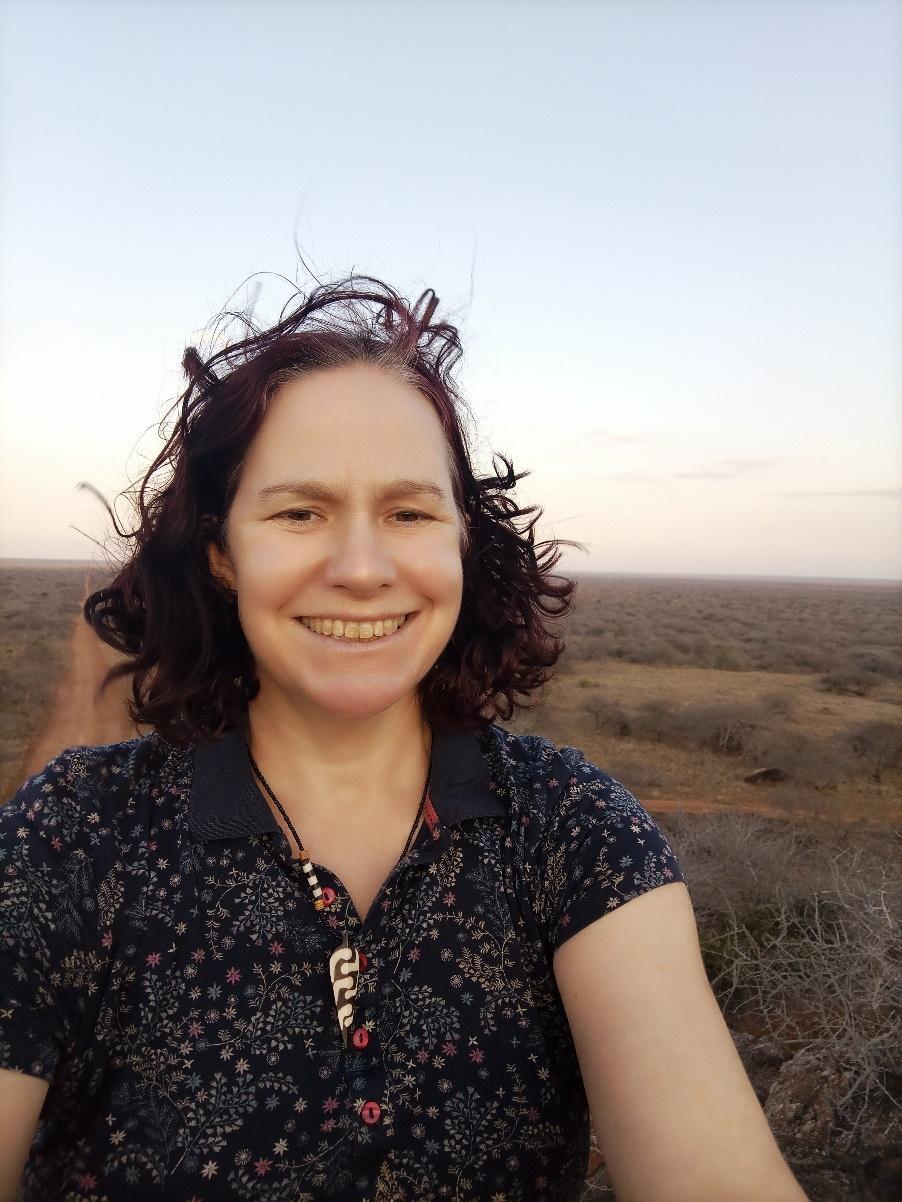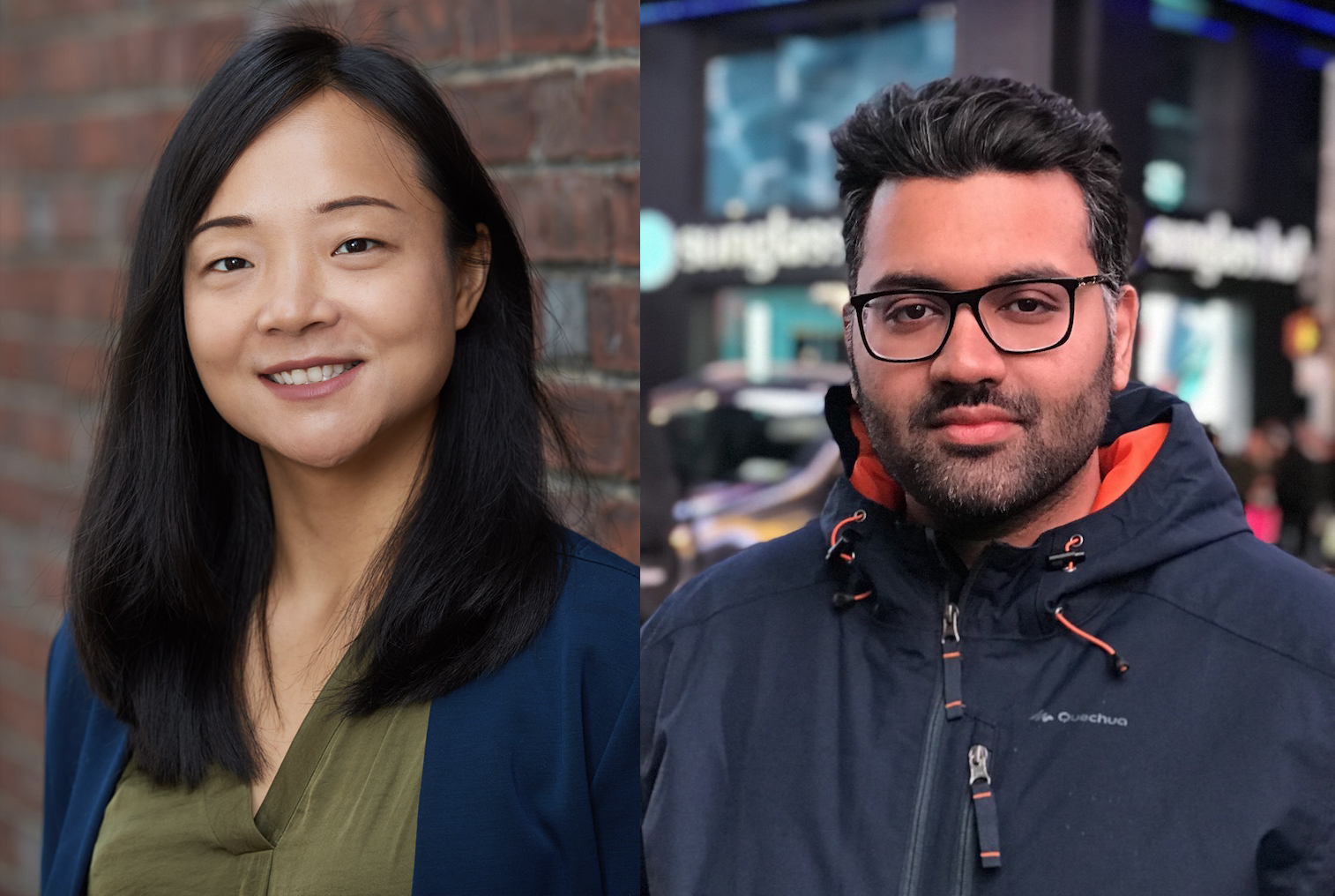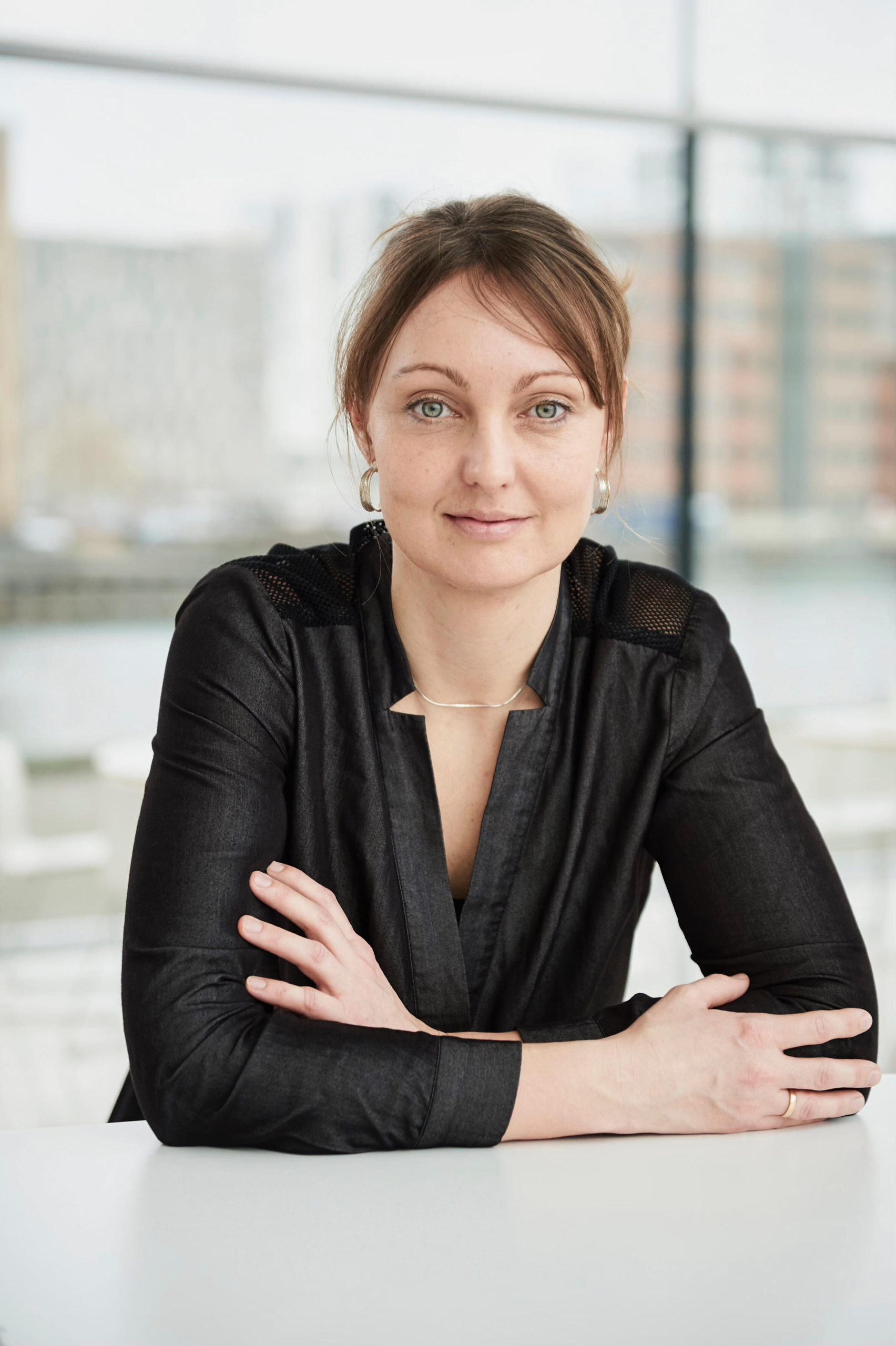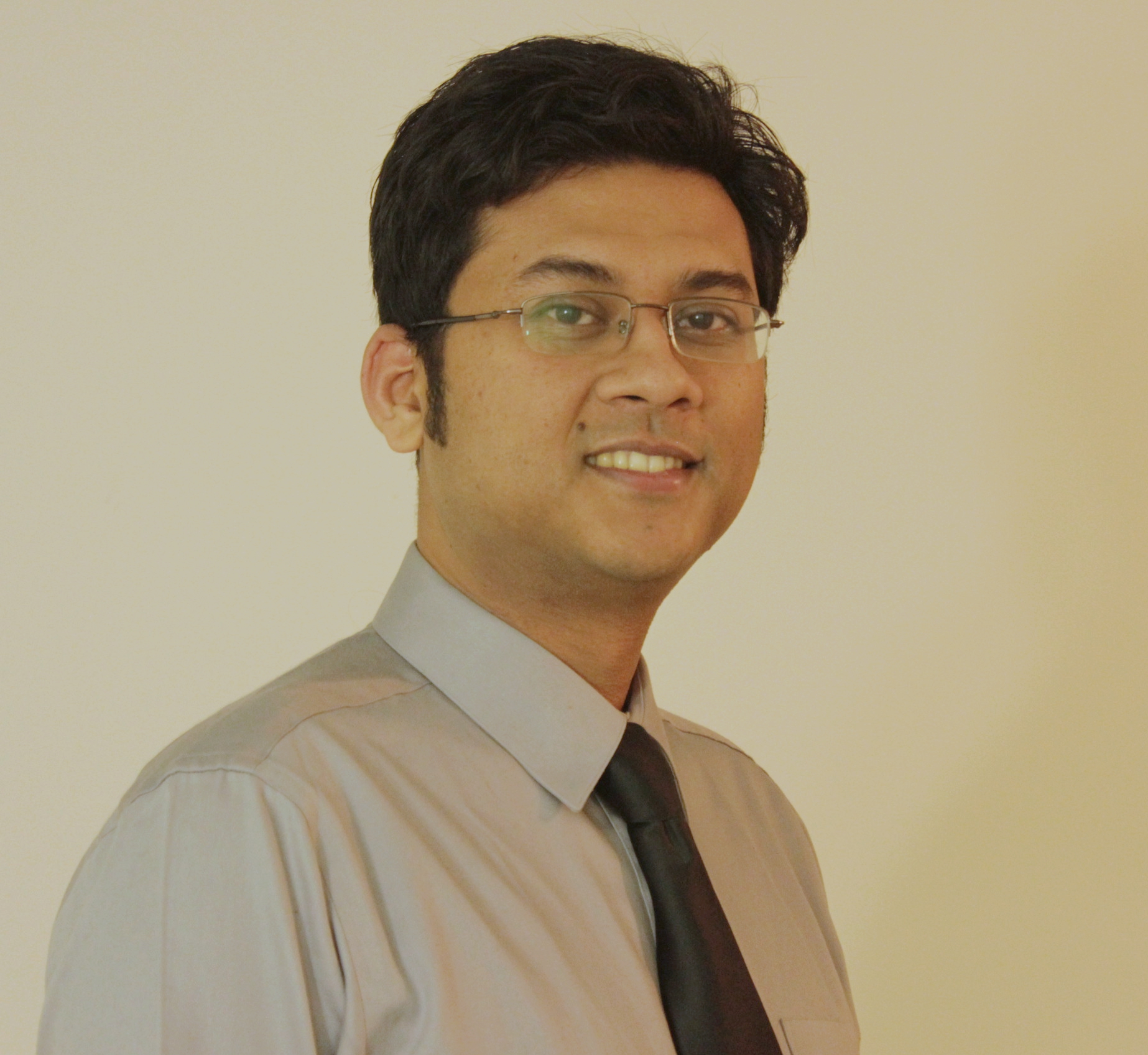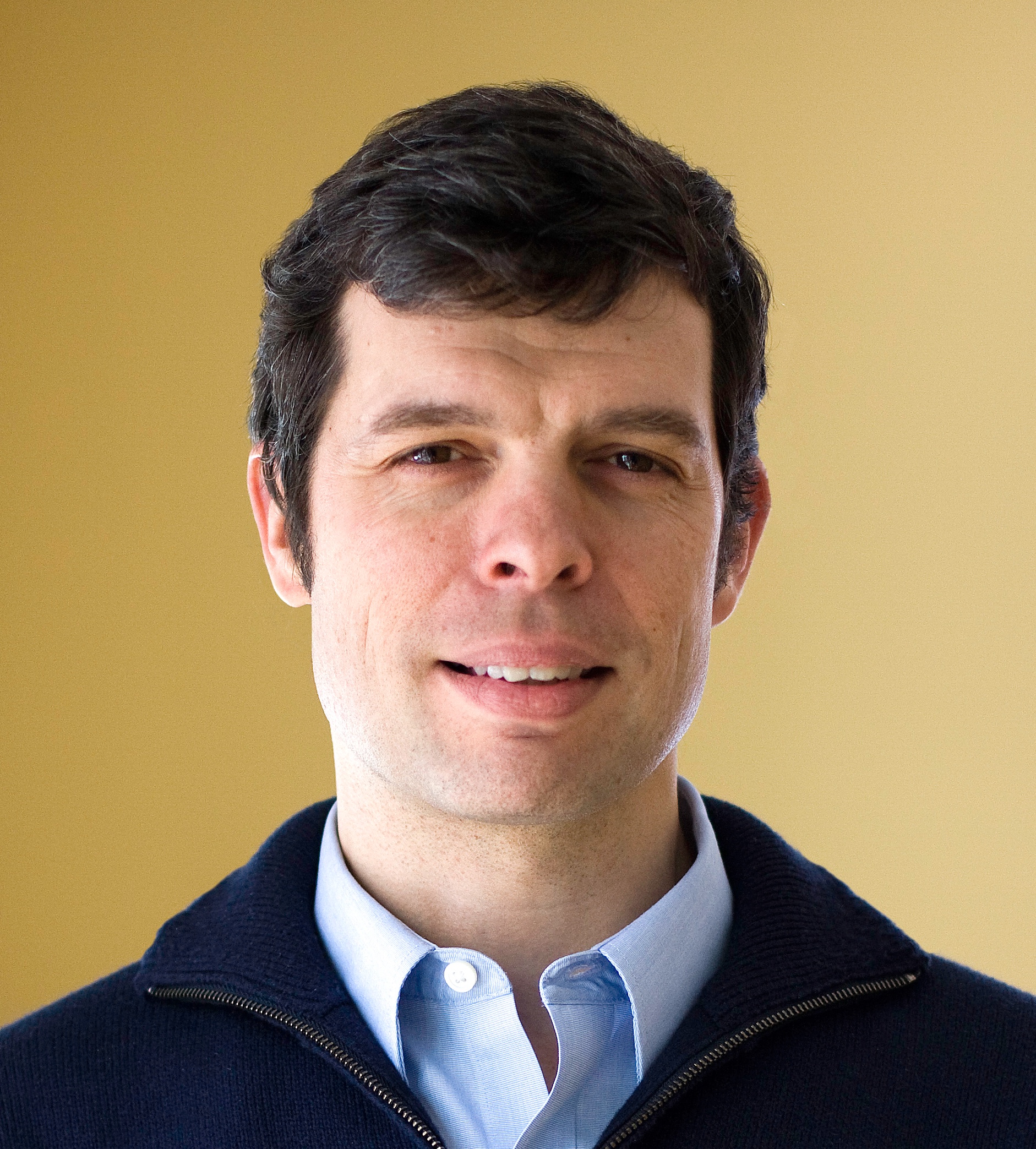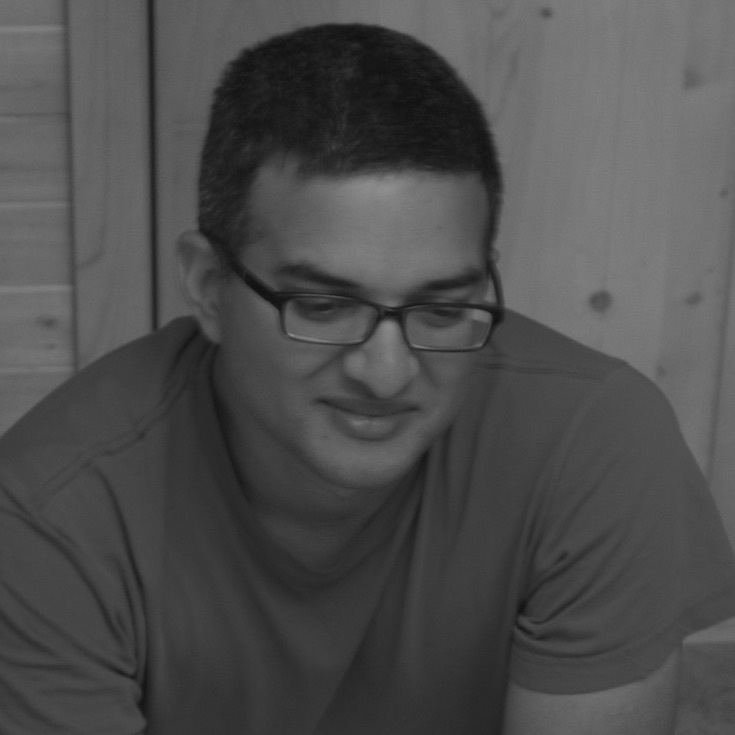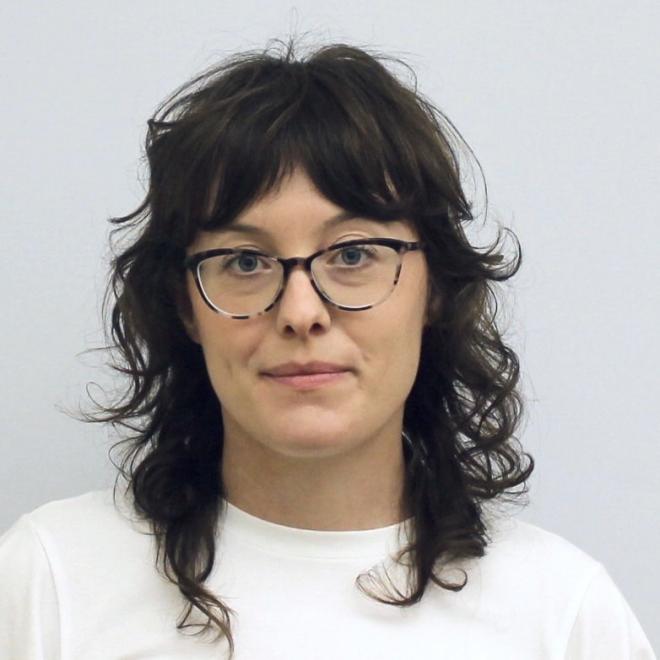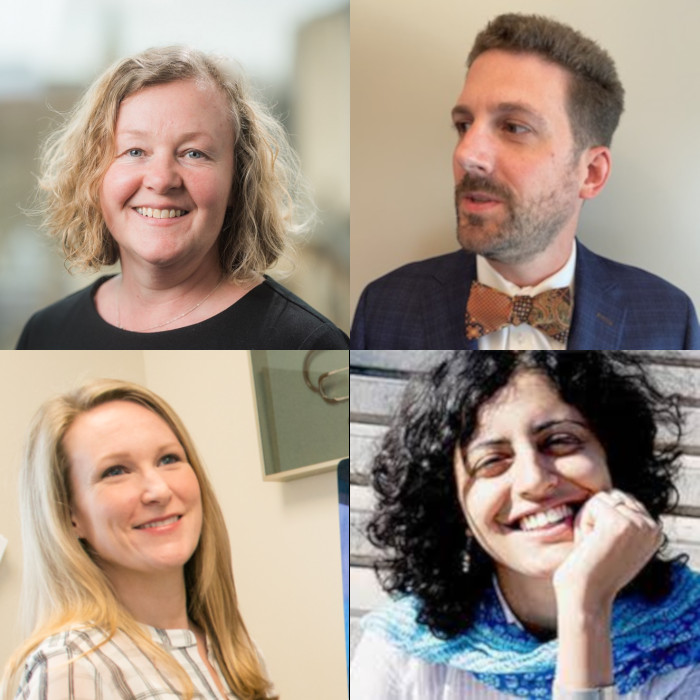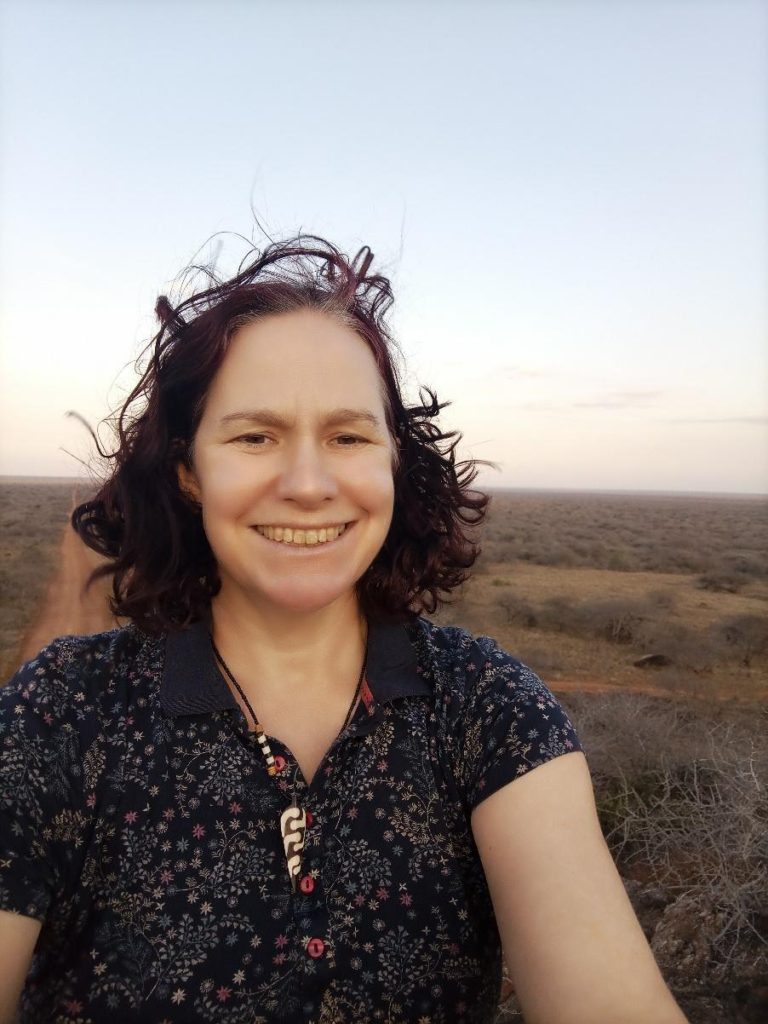
Conversation with Jacki O’Neill: The Great COVID-19 Digital Transformation of Small and Medium-sized Businesses in Africa
7th April 2022
Jacki is our guest on 7th April 2022. She will be hosted by Neha Kumar.
Bio: Dr. Jacki O’Neill is founding Director of Microsoft Africa Research Institute (MARI). She is passionate about designing technologies which enhance, rather than remove, agency and create sustainable futures. She brings this passion to the MARI where she is building a multi-disciplinary team, combining research, engineering and design to solve local problems globally. An ethnographer by trade, her research aims to drive innovation in order to make the best possible technologies for work, health and society. Before leading the MARI, she was a Principal Researcher in the Technology for Emerging Markets (TEM) area at Microsoft Research India. She has led major research projects in the future of work from new labour platforms to workplace AI and chat, digital currencies and financial inclusion and global healthcare.
Save the Date: Calendar invitation with Zoom link: .ics. Direct Zoom link (Link also in the .ics).
CitationJacki, O’N. (2022). The Great COVID-19 Digital Transformation of Small and Medium-sized Businesses in Africa. Conversation at CHIWORK. Editors: Cox, A., Janssen, C. P., Kumar, N., Mentis, H., Kun, Andrew L. & Shaer, O. https://chiwork.org/program/#20220407. April 7, 2022. & BibTeX@misc{20220407,
title = { The Great COVID-19 Digital Transformation of Small and Medium-sized Businesses in Africa },
author = {O’Neill, Jacki},
editor = {Cox, Anna and Janssen, Christian P. and Kumar, Neha and Mentis, Helena and Kun, Andrew L and Shaer, Orit},
howpublished={\url{https://chiwork.org/program/#20220407}},
year = 2022,
month = {April},
note = {Conversation at CHIWORK. April 7 2022}
}.
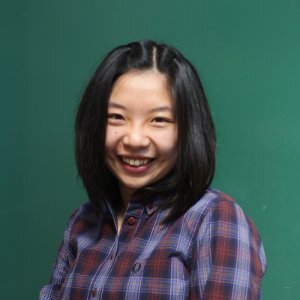
Conversation with Ding Wang: What happens when click workers become office workers? In search of the worker’s perspective on data annotation
31st March 2022
Ding is our guest on 31st March 2022. She will be hosted by Neha Kumar.
Bio: Ding is an HCI/Sr. UX Researcher at Google Research India and the Responsible AI & Human-Centered Technology group. Her current research is concerned with the practice of data annotation and how the practice and process affect data. Before joining Google, Ding was at the Technology For Emerging Markets Group at Microsoft Research India, where her work was focused on the work of nurses and how ‘chat’ was integrated into healthcare work. Outside of research, Ding is a food experimentalist, keen photographer and a newbie rock climber.
Save the Date: Calendar invitation with Zoom link: .ics. Direct Zoom link (Link also in the .ics) .
CitationWang, D. (2022). What happens when click workers become office workers? In search of the worker’s perspective on data annotation. Conversation at CHIWORK. Editors: Cox, A., Janssen, C. P., Kumar, N., Mentis, H., Kun, Andrew L. & Shaer, O. https://chiwork.org/program/#20220331. March 31, 2022. & BibTeX@misc{20220331,
title = { What happens when click workers become office workers?: In search of the worker’s perspective on data annotation },
author = {Wang, Ding},
editor = {Cox, Anna and Janssen, Christian P. and Kumar, Neha and Mentis, Helena and Kun, Andrew L and Shaer, Orit},
howpublished={\url{https://chiwork.org/program/#20220331}},
year = 2022,
month = {March},
note = {Conversation at CHIWORK. March 31 2022}
}.

Conversation with Lilly Irani: Taking Leadership from the Workers on Work Technologies
24th March 2022
Lilly is our guest on 24th March 2022.
Bio: Lilly Irani is an Associate Professor of Communication & Science Studies at University of California, San Diego. She also serves as faculty in the Design Lab, Institute for Practical Ethics, the program in Critical Gender Studies, and sits on the Academic Advisory Board of AI Now (NYU). She is author of Chasing Innovation: Making Entrepreneurial Citizens in Modern India (Princeton University Press, 2019) and Redacted (with Jesse Marx) (Taller California, 2021). Chasing Innovation has been awarded the 2020 International Communication Association Outstanding Book Award and the 2019 Diana Forsythe Prize for feminist anthropological research on work, science, or technology, including biomedicine. Her research examines the cultural politics of high-tech work and the counter-practices they generate, as both an ethnographer, a designer, and a former technology worker. She is a co-founder of the digital worker advocacy organization Turkopticon. Her work has appeared at ACM SIGCHI, New Media & Society, Science, Technology & Human Values, South Atlantic Quarterly, and other venues. She sits on the Editorial Committee of Public Culture and on the Editorial Advisory Boards of New Technology, Work, and Employment and Design and Culture. She has a Ph.D. in Informatics from University of California, Irvine.
Save the Date: Calendar invitation with Zoom link: .ics. Direct Zoom link (Link also in the .ics) .
CitationIrani, L. (2022). Taking Leadership from the Workers on Work Technologies. Conversation at CHIWORK. Editors: Cox, A., Janssen, C. P., Kumar, N., Mentis, H., Kun, Andrew L. & Shaer, O. https://chiwork.org/program/#20220324. March 24, 2022. & BibTeX@misc{20220324,
title = { Taking Leadership from the Workers on Work Technologies },
author = {Irani, Lilly},
editor = {Cox, Anna and Janssen, Christian P. and Kumar, Neha and Mentis, Helena and Kun, Andrew L and Shaer, Orit},
howpublished={\url{https://chiwork.org/program/#20220324}},
year = 2022,
month = {March},
note = {Conversation at CHIWORK. March 24 2022}
}.

Conversation with Koustuv Saha and Q. Vera Liao: AI and worker wellbeing: A responsible AI perspective
17th March 2022
Koustuv and Q. are our guest on 17th March 2022. They will be hosted by Chris Janssen.
Abstract: AI technologies are becoming prevalent in the workplaces, with the promise of making work more productive and efficient. However, these benefits may come with potential costs and harms, such as emotional and cognitive burden on workers, disparate impact on different groups, compromised privacy, unintended social and organizational consequences. Therefore, it is imperative to place worker wellbeing at the center of the development of AI technologies for the workplaces. We will draw on the broader FATE (fairness, accountability, transparency, and ethics of AI) and responsible AI research to discuss the impact of some workplace AI technologies on worker wellbeing, as well as opportunities for developing new AI technologies for worker wellbeing.
Bios:
Koustuv Saha and Q. Vera Liao are researchers in the FATE group at Microsoft Research Montreal.
Koustuv Saha recently completed his PhD in Computer Science from Georgia Tech and his research interest is in social computing, computational social science, and human-centered machine learning. His research adopts machine learning, natural language, and causal inference analysis to examine human behavior and wellbeing using social media and online data, along with complementary multimodal sensing data. His research has focused in situated communities such as college campuses and workplaces. His work has been published at CHI, CSCW, ICWSM, IMWUT, JMIR, FAT* (now FAccT), among others. He is a recipient of the Foley Scholarship Award and Snap Research Fellowship. Earlier, he completed his B.Tech (Hons.) in Computer Science and Engineering from Indian Institute of Technology (IIT) Kharagpur, and he holds an overall industry research experience of five years.
Q. Vera Liao is an HCI researcher, with current focuses on human-AI interaction, explainable AI, and responsible AI. Prior to joining MSR, she worked at IBM T.J. Watson Research Center, and studied at the University of Illinois at Urbana-Champaign and Tsinghua University. Her research received multiple paper awards at ACM CHI and IUI. She currently serves as the Co-Editor-in-Chief for Springer HCI Book Series, in the Editors team for ACM CSCW conferences, and on the Editorial Board of ACM Transactions on Interactive Intelligent Systems (TiiS). She actively organizes events that connect the HCI and AI communities, including several workshops and panels at CHI, IUI, and CSCW conferences.
Save the Date: Calendar invitation with Zoom link: .ics. Direct Zoom link (Link also in the .ics) .
CitationSaha, K. & Vera Liao, Q. (2022). AI and worker wellbeing: A responsible AI perspective. Conversation at CHIWORK. Editors: Cox, A., Janssen, C. P., Kumar, N., Mentis, H., Kun, Andrew L. & Shaer, O. https://chiwork.org/program/#20220317. March 17, 2022. & BibTeX@misc{20220317,
title = { AI and worker wellbeing: A responsible AI perspective },
author = {Saha, Koustuv and Vera Liao, Q.},
editor = {Cox, Anna and Janssen, Christian P. and Kumar, Neha and Mentis, Helena and Kun, Andrew L and Shaer, Orit},
howpublished={\url{https://chiwork.org/program/#20220317}},
year = 2022,
month = {March},
note = {Conversation at CHIWORK. March 17 2022}
}.
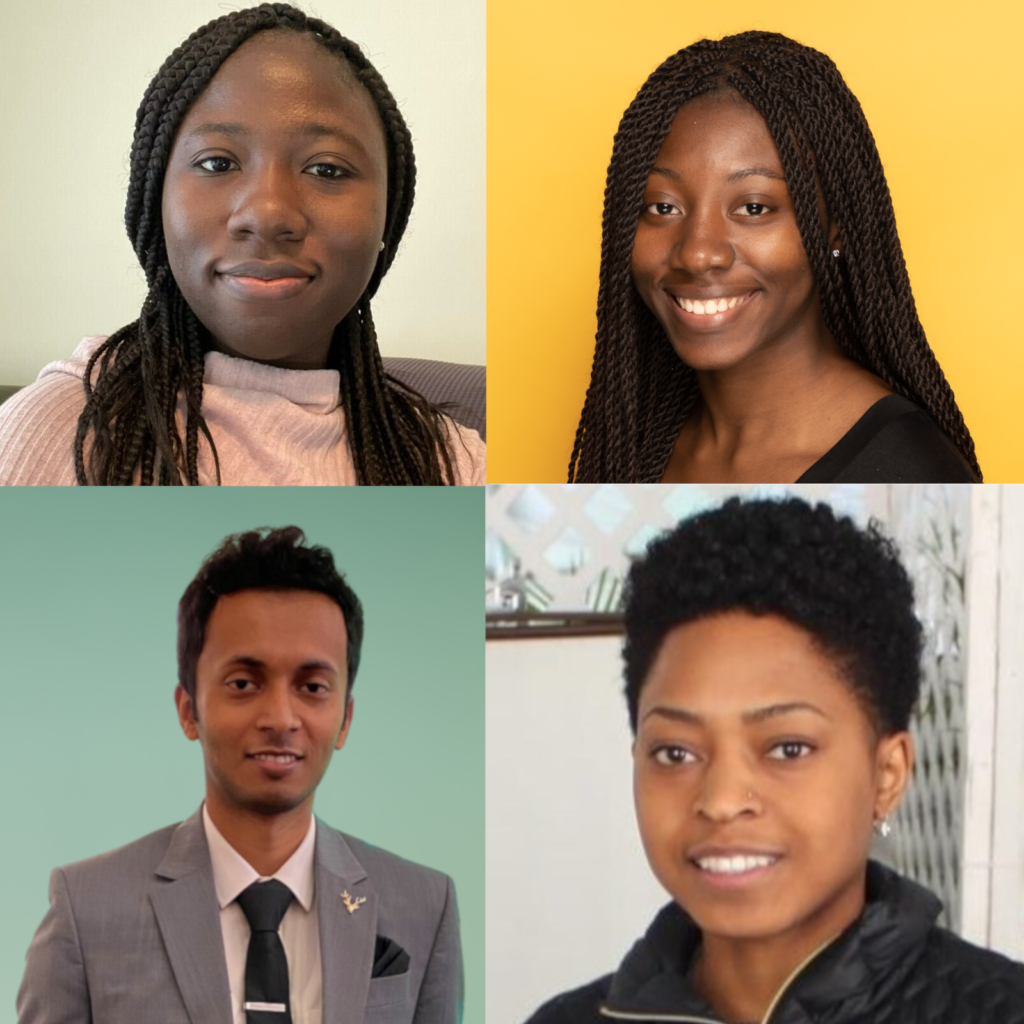
CHIWork panel on the future of work and wellbeing: Mixed reality applications for the future of work and wellbeing
10th March 2022
Alberta Ansah, Nabil Al Nahin Ch, Mosurat Olaosebikan, and Ayanna Seals are our guests on 10th March 2022. They will be hosted by Orit Shaer.
Speakers
Alberta Ansah
Bio: Alberta Ansah is a Ph.D. student in the Department of Electrical & Computer Engineering at the University of New Hampshire. She is a researcher at the Human Computer Interactions lab. Her research interests include productivity in remote work and how technologies such as VR can be used to support remote work and well-being. Alberta is currently working on the future remote work, investigating creativity and well-being for collaborative groups.
Nabil Al Nahin Ch
Bio: Nabil Al Nahin Ch is a Ph.D. student in the Department of Electrical & Computer Engineering at the University of New Hampshire. His research interests are in human-computer interaction for automated vehicles. Currently, he is looking into how human-automation interaction in vehicles has changed over the years and how we might expect to interact with automated vehicles in the future.
Monsurat Olaosebikan
Bio:
Monsurat Olaosebikan is a PhD candidate in Computer Science at Tufts University. Her research investigates how VR can support cognition in remote scientific collaboration through the design, development, and study of a note taking tool designed to be used in a collaborative VR environment.
Ayanna Seals
Bio: Ayanna Seals is a human-computer interaction research assistant and Ph.D. candidate at NYU Tandon School of Engineering. Her research focuses on the use of emerging technology to support health behavior change and data-driven clinical treatments. Her mission is to contribute to advancements in digital health by evaluating how interface designs of emerging technologies impact the cognitive and affective mechanisms that underly perception and behavior. In the near future, her goal is to expand these explorations to measure the effects of extended reality on biological systems such as neural and gene activity. After completing her Ph.D. (~Spring 2022), she would like to contribute to the development of tools to help people with chronic health challenges reclaim their lives by working with organizations researching and developing digital health solutions.
Save the Date: Calendar invitation with Zoom link: .ics. Direct Zoom link (Link also in the .ics).
CitationAnsah, A., Al Nahin Ch, N., Olaosebikan, M. & Seals, A. (2022). Mixed reality applications for the future of work and wellbeing. Conversation at CHIWORK. Editors: Cox, A., Janssen, C. P., Kumar, N., Mentis, H., Kun, Andrew L. & Shaer, O. https://chiwork.org/program/#20220310. March 10, 2022. & BibTeX@misc{20220310,
title = { Mixed reality applications for the future of work and wellbeing },
author = {Ansah, Alberta, Al Nahin Ch, Nabil, Olaosebikan, Monsureat, and Seals, Ayanna},
editor = {Cox, Anna and Janssen, Christian P. and Kumar, Neha and Mentis, Helena and Kun, Andrew L and Shaer, Orit},
howpublished={\url{https://chiwork.org/program/#20220310}},
year = 2022,
month = {March},
note = {Conversation at CHIWORK. March 10 2022}
}.
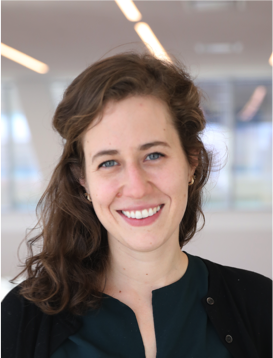
Maggie Jack: Making Memory Live: Internet Tools of Cambodian Media History
3rd March 2022
Maggie is our guest on 3rd March 2022. She will be hosted by Neha Kumar.
Bio: I am a postdoctoral scholar on the NSF-funded project “Creating Work/Life” with a team spanning Syracuse University (PI: Ingrid Erickson) and University of California, Irvine (PI: Melissa Mazmanian). I am a research affiliate at the Digital Life Initiative at Cornell Tech in New York City and an adjunct professor at NYU Tandon, teaching “Transnational Technology” in the spring of 2022. My book-in-progress Media Ruinsis under contract in the Labor and Technology series at the MIT Press (Katie Helke, editor; Winifred Poster, series editor). I hold a PhD in Information Science (2020) from Cornell University, where I was advised by Steve Jackson. I have a minor PhD concentration in Anthropology and was a member of Cornell’s Southeast Asia Program. This work was funded by NSF dissertation improvement grant number 1656189 “A Historical and Ethnographic Inquiry of Media Creation and Reconstruction.”
Save the Date: Calendar invitation with Zoom link: .ics. Direct Zoom link (Link also in the .ics) .
CitationJack, M. (2022). Making Memory Live: Internet Tools of Cambodian Media History. Conversation at CHIWORK. Editors: Cox, A., Janssen, C. P., Kumar, N., Mentis, H., Kun, Andrew L. & Shaer, O. https://chiwork.org/program/#20220303. March 3, 2022. & BibTeX@misc{20220303,
title = { Making Memory Live: Internet Tools of Cambodian Media History },
author = {Jack, Maggie},
editor = {Cox, Anna and Janssen, Christian P. and Kumar, Neha and Mentis, Helena and Kun, Andrew L and Shaer, Orit},
howpublished={\url{https://chiwork.org/program/#20220303}},
year = 2022,
month = {March},
note = {Conversation at CHIWORK. March 03 2022}
}.
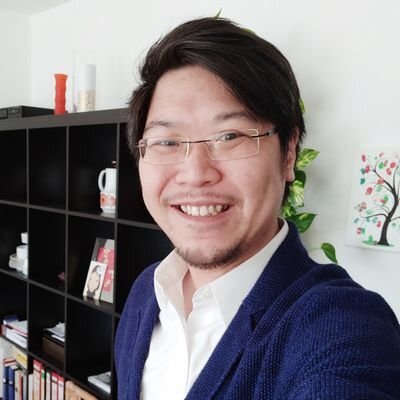
Lewis Chuang: Beyond Performance: Understanding the Brain at Work
24th February 2022
Lewis is our guest on 24th February 2022. He will be hosted by Chris Janssen.
Abstract: Our ability to work is often quantified in terms of performance. How fast and accurate are we in getting things done and what are the conditions that could help us be even faster and more accurate? How should we quantify performance in an age of automation, where individuals may not even be the author of the end results? In this conversation, I will talk about how Neuroergonomics (or the application of neuroscientific methods and theories to everyday work) could lend further insight into the information processing mechanisms that allow us to perform work, even in the absence of visible performance.
Bio: Lewis Chuang is a Lecturer at Ludwig-Maximilian-Universität Munich and senior research at the Leibniz Institute for Working Environments and Human Factors. He holds a doctorate in behavioral neuroscience and employs task analyses, physiological monitoring, psychophysics, and applied computational modeling to understand how we interact with digital technologies and automation. He has received funding at the European, national, and state level to research topics that include wearable computing, augmented/virtual reality, teleoperations, and vehicle handling. He co-initiated the Fachgruppe Ingenieurpsychologie of the German Society for Psychology and is also an associate editor for Scientific Reports, the International Journal for Human-Computer Studies, and Frontiers in Neuroergonomics.
Save the Date: Calendar invitation with Zoom link: .ics. Direct Zoom link (Link also in the .ics) .
CitationChuang, L. (2022). Beyond Performance: Understanding the Brain at Work. Conversation at CHIWORK. Editors: Cox, A., Janssen, C. P., Kumar, A., Mentis, H., Kun, Andrew L. & Shaer, O. https://chiwork.org/program/#20220224. February 24, 2022. & BibTeX@misc{20220224,
title = { Beyond Performance: Understanding the Brain at Work },
author = { Chuang, Lewis},
editor = {Cox, Anna and Janssen, Christian P. and Kumar, Neha and Mentis, Helena and Kun, Andrew L and Shaer, Orit},
howpublished={\url{https://chiwork.org/program/#20220224}},
year = 2022,
month = {February},
note = {Conversation at CHIWORK. February 24 2022}
}.

Tanja van der Lippe: Work-life boundaries, working from home and time pressure
17th February 2022
Tanja is our guest on 17th February 2022. She will be hosted by Chris Janssen.
Abstract: Many of us recognize the constant balancing act between work and family, the goal being to excel in both areas. Van der Lippe will explain that time pressure and a disbalance is both an individual and a societal problem; we want, must and can do so much. Working from home makes work life boundaries even less clear; but it is not only an individual activity. We are also dependent on our colleagues. When more colleagues work from home, then the employee is less productive. This has been tested with data from 11.000 employees and their managers in more than 250 organizations in 9 European countries.
Bio: Tanja van der Lippe is Professor of Sociology of Households and Labour Relations at the Utrecht University, the Netherlands. She is chair of the Department of Sociology and the research school ICS (Interuniversity Center for Social Science Theory and Methodology) and connected to the Future of Work Hub.
Van der Lippe researches the relationships between work and family, combining insights from sociology, economics and psychology. Among other things, she looks at how to deal with the conflicting demands that work and family place on employees, family members and employers. She does this from a national and international comparative perspective.
In 2013 she received an Advanced Grant from the European Research Council (ERC) for her research into investing in a sustainable workforce in Europe. She is a member of the Royal Netherlands Academy of Arts and Sciences (KNAW, 2014), and of the Royal Dutch Society of Sciences (KHMW, 2013).
Save the Date: Calendar invitation with Zoom link: .ics. Direct Zoom link (Link also in the .ics) .
Citationvan der Lippe, T. (2022). Tanja van der Lippe: Work-life boundaries, working from home and time pressure. Conversation at CHIWORK. Editors: Cox, A., Janssen, C. P., Kumar, A., Mentis, H., Kun, Andrew L. & Shaer, O. https://chiwork.org/program/#20220217. February 17, 2022. & BibTeX@misc{20220217,
title = { Beyond Performance: Understanding the Brain at Work },
author = { van der Lippe, Tanja},
editor = {Cox, Anna and Janssen, Christian P. and Kumar, Anna and Mentis, Helena and Kun, Andrew L and Shaer, Orit},
howpublished={\url{https://chiwork.org/program/#20220217}},
year = 2022,
month = {February},
note = {Conversation at CHIWORK. February 17 2022}
}.

Naja Holten Møller: Responsibly Researching and Designing the Future Workplace with Large Datasets
10th February 2022
Naja is our guest on 10th February 2022. She will be hosted by Neha Kumar.
Bio: Naja Holten Møller is an assistant professor at the Department of Computer Science, at University of Copenhagen, Denmark. She’s the initiator of the Confronting Data Co-Lab, a co-operation of scholars working and acting together in support of the stakeholders of technology design, with a special focus on their differential power. Her work draws on participatory and empirical methods. It explores how data, automation and AI introduce continual forms of change for the public sector decision-making processes, including both civil servants and citizens who engage with these processes. She is the Papers Co-Chair of the ACM GROUP conference 2020-2022 and part of the CSCW Journal’s Editorial Advisory Board. Together with colleagues, she is the co-organizer of the CHI 2022 workshop on Investigating Data Work Across Domains, arguing for a shift in focus from modeling of AI to the work associated with making quality data.
Save the Date: Calendar invitation with Zoom link: .ics. Direct Zoom link (Link also in the .ics) .
CitationMøller, N. H. (2022). Responsibly Researching and Designing the Future Workplace with Large Datasets. Conversation at CHIWORK. Editors: Cox, A., Janssen, C. P., Kumar, A., Mentis, H., Kun, Andrew L. & Shaer, O. https://chiwork.org/program/#20220210. February 10, 2022. & BibTeX@misc{20220210,
title = { Responsibly Researching and Designing the Future Workplace with Large Datasets },
author = { Møller, Naja Holten},
editor = {Cox, Anna and Janssen, Christian P. and Kumar, Anna and Mentis, Helena and Kun, Andrew L and Shaer, Orit},
howpublished={\url{https://chiwork.org/program/#20220210}},
year = 2022,
month = {February},
note = {Conversation at CHIWORK. February 10 2022}
}.
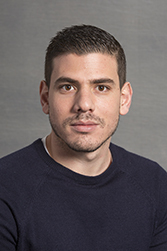
Marios Constantinides: Augmenting Meetings Experience
3rd February 2022
Marios is our guest on 3rd February 2022. He will be hosted by Anna Cox.
Abstract: The workplace is constantly changing and evolving. These changes are currently accelerated by the COVID-19 pandemic, with remote work reshaping how we collaborate, coordinate, and communicate. Taking meetings as a common workplace activity, I will present a new toolbox that is likely to benefit employees to be productive and connected, and, at the same time, allow organizations assess their workforce’s productivity and well-being. In this conversation, I will discuss how the use of mobile and wearable sensing technologies allows us to tap into people’s emotional states, assess their environment, capture communication patterns that might otherwise go unnoticed, which, in turn, can be turned into actionable insights to improve and augment our (remote) meeting experience.
Bio: Dr. Marios Constantinides is a Senior Research Scientist at Nokia Bell Labs, Cambridge UK, and a visiting fellow at the University of Cambridge. His work focuses on understanding and modeling human behaviour, particularly using mobile and wearable sensing, with the aim of building technologies that augment the ways people interact and communicate. He received his Ph.D. from University College London (2018) in the area of HCI, where he focused on adaptive user interfaces and modeling users’ interaction behaviour with mobile apps. Previously, he gained research experience at Telephonica Alpha, Spain (2017), where he worked on modeling mobile-sensing and network data for mood prediction. He also holds an MSc in Software Systems Engineering from University College London (2013) and a BSc in Computer Science from University of Cyprus (2012).
Save the Date: Zoom link. Calendar invitation with Zoom link: .ics.
CitationConstantinides, M. (2022). Augmenting Meetings Experience. Conversation at CHIWORK. Editors: Cox, A., Janssen, C. P., Kumar, A., Mentis, H., Kun, Andrew L. & Shaer, O. https://chiwork.org/program/#20220203. February 3, 2022. & BibTeX@misc{20220203,
title = { Augmenting Meetings Experience },
author = { Constantinides, Marios },
editor = {Cox, Anna and Janssen, Christian P. and Kumar, Anna and Mentis, Helena and Kun, Andrew L and Shaer, Orit},
howpublished={\url{https://chiwork.org/program/#20220203}},
year = 2022,
month = {February},
note = {Conversation at CHIWORK. February 3 2022}
}.

Ishtiaque Ahmed: Low-paid Contractual Jobs on Mobile in the Global South
27th January 2022
Ahmed is our guest on 27th January 2022. He will be hosted by Chris Janssen.
Bio: Syed Ishtiaque Ahmed is an Assistant Professor of Computer Science at the University of Toronto, and the Director of the ‘Third Space” research group. He is also a graduate faculty member of the School of Environment, a Faculty Fellow at the Schwartz Reisman Institute for Technology and Society, and a Senior Fellow at Massey College. He co-organizes the monthly Critical Computing Seminar at UofT, and co-steer UofT’s SDG initiative.
Ishtiaque’s research focuses on the design challenges around strengthening the ‘voices’ or marginalized communities around the world. He conducted ethnography and built technologies with many underprivileged communities in Bangladesh, India, Pakistan, Iran, Iraq, Turkey, China, Canada, and the US. Ishtiaque received his PhD and Masters from Cornell University in the USA, and his Bachelor from BUET in Bangladesh. He received the International Fulbright Science and Technology Fellowship, Fulbright Centennial Fellowship, and Schwartz Reisman Institute Fellowship among others. His research has been funded by all three branches of Canadian tri-council research (NSERC, CIHR, SSHRC), NSF, NIH, Google, Microsoft, Facebook, Intel, Samsung, the World Bank, UNICEF, and UNDP, among others. You can read more about his work at his website: https://www.ishtiaque.net/
Save the Date: Calendar invitation with Zoom link: .ics. Direct Zoom link (Link also in the .ics) .
CitationIshtiaque, A. (2022). Low-paid Contractual Jobs on Mobile in the Global South. Conversation at CHIWORK. Editors: Cox, A., Janssen, C. P., Kumar, A., Mentis, H., Kun, Andrew L. & Shaer, O. https://chiwork.org/program/#20220127. January 27, 2022. & BibTeX@misc{20220127,
title = { Low-paid Contractual Jobs on Mobile in the Global South },
author = { Ishtiaque, Ahmed },
editor = {Cox, Anna and Janssen, Christian P. and Kumar, Anna and Mentis, Helena and Kun, Andrew L and Shaer, Orit},
howpublished={\url{https://chiwork.org/program/#20220127}},
year = 2022,
month = {January},
note = {Conversation at CHIWORK. January 27 2022}
}.
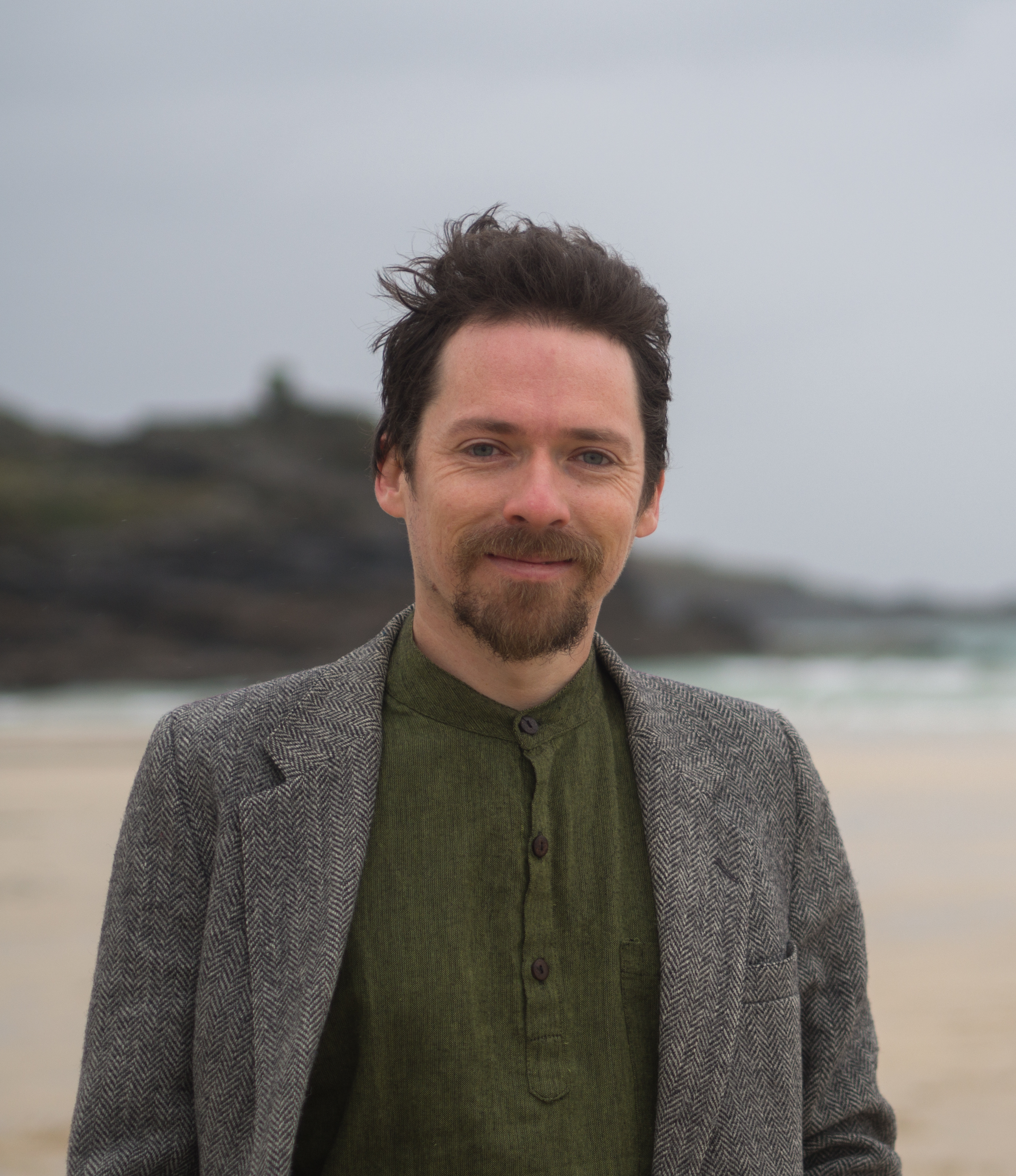
Sandy Gould: Data-work and work-data futures
20th January 2022
Sandy is our guest on 20th January 2022. He will be hosted by Anna Cox.
Bio: Sandy Gould is a Senior Lecturer (≈ Associate Professor) at the School of Computer Science and Informatics at Cardiff University. In his research he tries to understand the influences of technology on work, from episodes of interactions with individual tools, to workplace data collection, to the ways that people organise their work in the context of the rest of their lives. You can read more about his work at his website: https:///www.sjjg.uk/
Save the Date: Calendar invitation with Zoom link: .ics. Direct Zoom link (Link also in the .ics).
CitationGould, S. (2022). Sandy Gould: Data-work and work-data futures. Conversation at CHIWORK. Editors: Cox, A., Janssen, C. P., Kumar, A., Mentis, H., Kun, Andrew L. & Shaer, O. https://chiwork.org/program/#20220120. January 20, 2022. & BibTeX@misc{20220120,
title = {Data-work and work-data futures},
author = {Gould, Sandy,
editor = {Cox, Anna and Janssen, Christian P. and Kumar, Anna and Mentis, Helena and Kun, Andrew L and Shaer, Orit},
howpublished={\url{https://chiwork.org/program/#20220120}},
year = 2022,
month = {January},
note = {Conversation at CHIWORK. January 20 2022}
}.

Roundtable Discussion — The Future of Care Work: Towards a Radical Politics of Care in HCI Research and Practice
9th December 2021
On Thursday 9th December, we hosted a roundtable with Naveena Karusala, Azra Ismail, Cella Sum, Elizabeth Fetterolf, Anthony Poon, Melissa Renau Cano, Ambika Tandon, Abhishek Sekharan, and Neha Kumar.
Abstract: The deep necessity and simultaneous devaluation of care infrastructures in many societies across the world signals how care work and its futures are subject to unique power dynamics compared to other work. We thus need to attend to the broader social, political, and economic systems that shape care work and the emerging technologies being used in it. Researchers who came together around this topic at a CSCW 2021 workshop are excited to further the conversation through this CHIWORK roundtable discussion. We invite researchers and practitioners to join us in asking several critical questions of the future of care work: How is care work (de)valued, (in)visibilized, or coerced under capitalism and to what end? What narratives drive the push for technology in care work and whom does it benefit? Who controls narratives of the future of work and what insights does a focus on care work open up? And how can we as researchers advocate for and with care and caregivers?
Save the Date: Calendar invitation with Zoom link: .ics. Direct Zoom link (Link also in the .ics).
CitationNaveena Karusala, Azra Ismail, Cella Sum, Elizabeth Fetterolf, Anthony Poon, Melissa Renau Cano, Ambika Tandon, Abhishek Sekharan, and Neha Kumar (2021). Roundtable Discussion — The Future of Care Work: Towards a Radical Politics of Care in HCI Research and Practice. Conversation at CHIWORK. Editors: Cox, A., Janssen, C. P., Kumar, A., Mentis, H., Kun, Andrew L. & Shaer, O. https://chiwork.org/program/#20211209 . November 18, 2021. & BibTeX@misc{20211118,
title = {Implicit Bias and Stereotyping in Globally Distributed Work},
author = {Naveena Karusala, Azra Ismail, Cella Sum, Elizabeth Fetterolf, Anthony Poon, Melissa Renau Cano, Ambika Tandon, Abhishek Sekharan, and Neha Kumar},
editor = {Cox, Anna and Janssen, Christian P. and Kumar, Anna and Mentis, Helena and Kun, Andrew L and Shaer, Orit},
howpublished={\url{https://chiwork.org/program/#20211209}},
year = 2021,
month = {December},
note = {Conversation at CHIWORK. December 9 2021}
}.
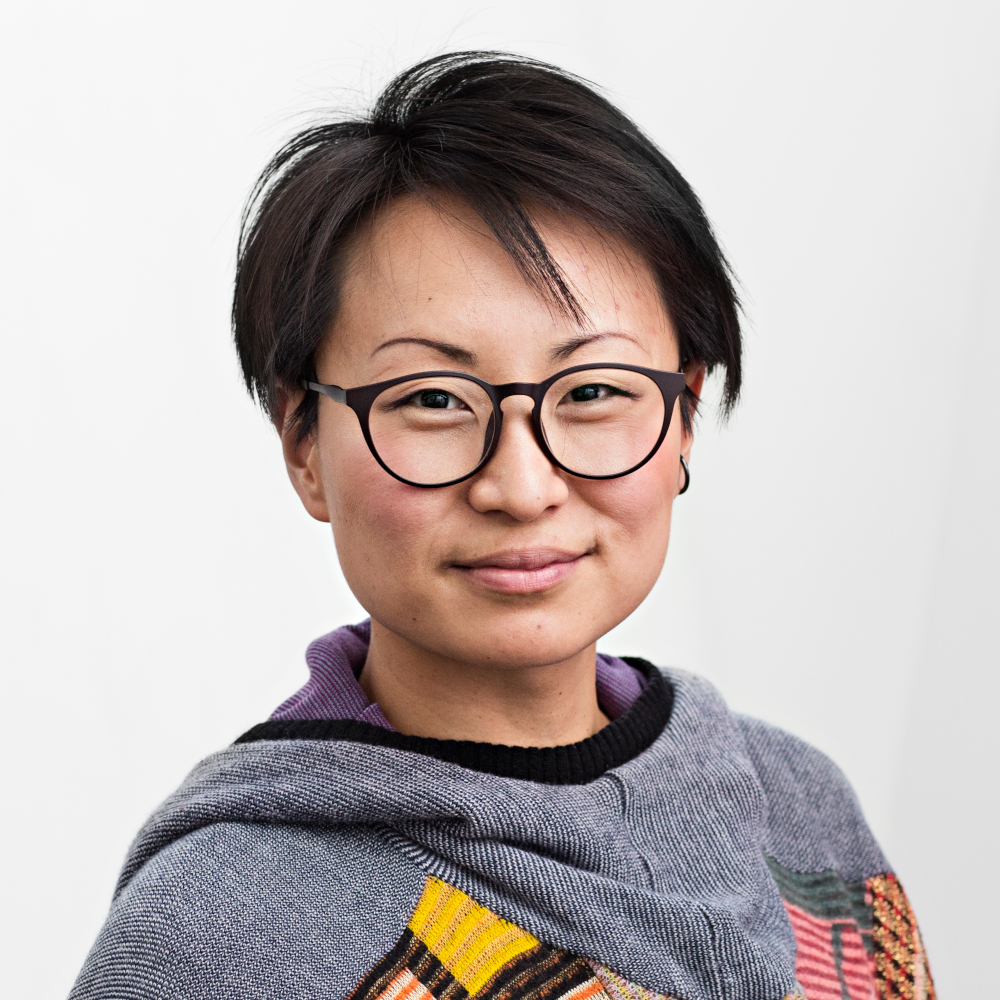
Stina Matthiesen: Implicit Bias and Stereotyping in Globally Distributed Work
2nd December 2021
Stina was our guest on 2nd December 2021. She discussed “Implicit Bias and Stereotyping in Globally Distributed Work” with Helena Mentis. The video of their conversation will soon be posted below.
Bio: Stina Matthiesen is an assistant professor in Software, Data, People & Society at the Department of Computer Science, University of Copenhagen. She has a background in software development and engineering and is primarily engaged in research within CSCW, HCI, and health informatics. In her work on globally distributed work, she explored how stereotypes and implicit biases are weaved into the fabric of everyday tool use and practices in global software development (GSD). Currently, her research focuses on analyzing and co-designing data-driven technologies for patient-clinician collaboration and clinical decision support in cardiac care. In particular, she is interested in how emergent technologies enable, or hinder, various forms of clinical work and collaboration, as well how such technologies may affect the emotional labor of chronic patients.
CitationMatthiesen, S. (2021). Stina Matthiesen: Implicit Bias and Stereotyping in Globally Distributed Work. Conversation at CHIWORK. Editors: Cox, A., Janssen, C. P., Kumar, A., Mentis, H., Kun, Andrew L. & Shaer, O. https://chiwork.org/program/#20211202 . November 18, 2021. & BibTeX@misc{20211118,
title = {Implicit Bias and Stereotyping in Globally Distributed Work},
author = {Matthiesen, Stina,
editor = {Cox, Anna and Janssen, Christian P. and Kumar, Anna and Mentis, Helena and Kun, Andrew L and Shaer, Orit},
howpublished={\url{https://chiwork.org/program/#20211202}},
year = 2021,
month = {December},
note = {Conversation at CHIWORK. December 2 2021}
}.
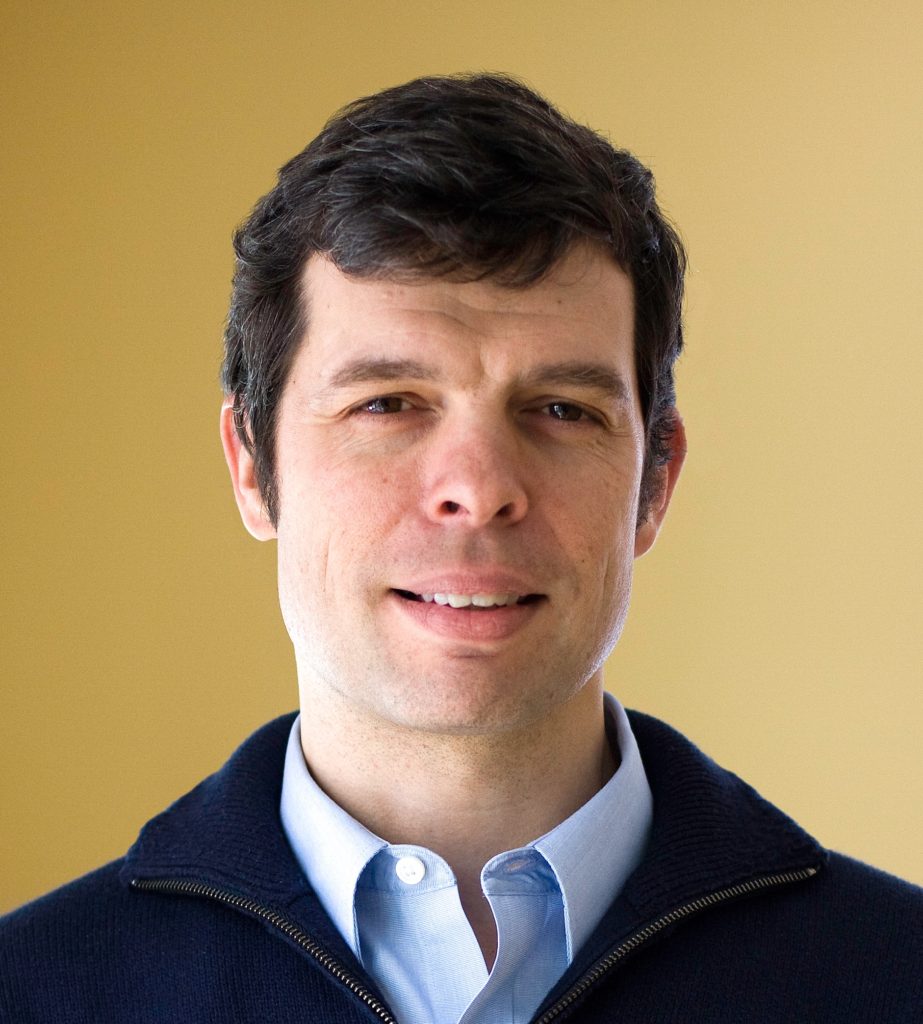
Andrew Kun: The Future of Work and Wellbeing: From Automated Vehicles to Working from Home
18th November 2021
Andrew was our guest on 18th November 2021. He discussed “The Future of Work and Wellbeing: From Automated Vehicles to Working from Home” with Anna Cox. The video of their conversation is below:
Abstract: How can technology support workers in our rapidly changing world? How can we help them be productive and creative, and how can we support their overall wellbeing? To explore these questions, this conversation will focus on two broad topics: working in future automated vehicles, and working from home.
About: Andrew Kun is Professor of Electrical and Computer Engineering at the University of New Hampshire. In his research Andrew focuses on speech interfaces and augmented-reality interfaces in vehicles, on emerging trends in human-computer interaction for automated vehicles and working from home, and on the use of visual behavior and pupil diameter changes to model the relationships between user interface characteristics and user performance and satisfaction.
CitationKun, A. (2021). Andrew Kun: The Future of Work and Wellbeing: From Automated Vehicles to Working from Home. Conversation at CHIWORK. Editors: Cox, A., Janssen, C. P., Kumar, A., Mentis, H., Kun, Andrew L. & Shaer, O. https://chiwork.org/program/#20211202 . November 18, 2021. & BibTeX@misc{20211118,
title = {Andrew Kun: The Future of Work and Wellbeing: From Automated Vehicles to Working from Home},
author = {Kun, Andrew,
editor = {Cox, Anna and Janssen, Christian P. and Kumar, Anna and Mentis, Helena and Kun, Andrew L and Shaer, Orit},
howpublished={\url{https://chiwork.org/program/#20211118}},
year = 2021,
month = {November},
note = {Conversation at CHIWORK. November 18 2021}
}.
Noopur Raval: Studying intersectional challenges in gig work: lessons from the global South
11th November 2021
Noopur Raval was our guest on 11th November 2021. She discussed “Studying intersectional challenges in gig work: lessons from the global South” with Neha Kumar. The video of their conversation is below.
Abstract: With the rise and proliferation of gig economy platforms providing ride hailing, food delivery and other app-based services on-demand in major urban centers of the world, there have been major transformations in work and life globally. Gig platforms have certainly disrupted and redefined the discovery and allocation of casual work through algorithmic management, creating grave concerns for regulating the future of work. Simultaneously, especially in the global South, gig platforms have also emerged as important avenues for gaining temporary paid work and socio-economic mobility for low income individuals, women and migrant workers. Drawing on over five years of ethnographic research with a variety of stakeholders in the gig economy including workers, managers, consumers and regulators, my work shows how platformization produces heterogeneous effects on the lives, livelihoods and productive and reproductive capacities of different individuals in urban India. This talk will draw on multiple case studies of gig work to show these heterogeneous effects and how everyday technology practice also informs platform design in return. I will also offer some considerations for HCI scholars looking to study the effects of emerging technologies in global South settings.
About: Noopur Raval is a postdoctoral researcher and adjunct professor at the Tandon School of Engineering at New York University. She received her PhD in Informatics from UC Irvine in 2020 and is a tech ethnographer and interdisciplinary scholar at the intersection of HCI, Communication and Media Studies, Cultural Anthropology and Postcolonial History. She has written extensively on gig work, platformization and the future of work in the global South. Her new work extends to studying the cultural labor and subjective decision-making by global South data annotators in order to train AI/ML systems. Her work has appeared in CSCW, CHI, ACM Interactions among other venues. She has also worked in UX research at multiple Microsoft Research labs. Noopur is an alumna of the Berkman-Klein Center for Internet; Society at Harvard University and the Center for Tech, Society and Policy at UC Berkeley.
CitationRaval, N. (2021). Studying intersectional challenges in gig work: lessons from the global South. Conversation at CHIWORK. Editors: Cox, A., Janssen, C. P., Kumar, A., Mentis, H., Kun, Andrew L. & Shaer, O. https://chiwork.org/program/#20211111 . November 11, 2021. & BibTeX@misc{20211111,
title = {Studying intersectional challenges in gig work: lessons from the global South},
author = {Raval, Noopur,
editor = {Cox, Anna and Janssen, Christian P. and Kumar, Anna and Mentis, Helena and Kun, Andrew L and Shaer, Orit},
howpublished={\url{https://chiwork.org/program/#20211111}},
year = 2021,
month = {November},
note = {Conversation at CHIWORK. November 11, 2021}
}.
Barath Raghavan: Computing within Limits
4th November 2021
Barath Raghavan was our guest on 4th November 2021. He discussed “Computing within Limits” with Neha Kumar. The video of their conversation is below.
Abstract: Global society has run up against the limits of the global ecosystem. This has happened during an era in which computing has become central to society and to the management of societal challenges. What are the ecological and social limits that we are likely to face in the future, and what is the role of computing in responding to them?
About: Barath Raghavan received his PhD in Computer Science from UC San Diego in 2009 and his BS in Electrical Engineering and Computer Science from UC Berkeley in 2002. Before joining USC in 2018, he split his time between industry and academia working on a wide range of projects in core Computer Science areas such as computer networking, security, and distributed systems and on socially-focused topics such as rural Internet access and sustainable agriculture.
CitationRaghavan, B. (2021). Computing within Limits. Conversation at CHIWORK. Editors: Cox, A., Janssen, C. P., Kumar, A., Mentis, H., Kun, Andrew L. & Shaer, O. https://chiwork.org/program/#20211104 . November 4, 2021. & BibTeX@misc{20211104,
title = { Worker-Centered Design},
author = {Raghavan, Barath},
editor = {Cox, Anna and Janssen, Christian P. and Kumar, Anna and Mentis, Helena and Kun, Andrew L and Shaer, Orit},
howpublished={\url{https://chiwork.org/program/#20211104}},
year = 2021,
month = {November},
note = {Conversation at CHIWORK. November 04, 2021}
}.
Sarah Fox: Worker-Centered Design
28th October 2021
Sarah Fox was our guest on 28th October 2021. Sara discussed “Worker-Centered Design” with Chris Janssen. The video of their conversation is below.
About: Sarah Fox is an Assistant Professor at Carnegie Mellon University in the Human Computer Interaction Institute, where she directs the Tech Solidarity Lab. Her research focuses on how technological artifacts challenge or propagate social exclusions by examining existing systems and building alternatives. Her work has earned awards in leading computing venues including ACM CSCW, CHI, and DIS, and has been featured in Design Issues, the Journal of Peer Production, and New Media and Society. Prior to CMU, she was a Postdoctoral Scholar in the Department of Communication and the Design Lab at the University of California, San Diego. She holds a Ph.D. in Human Centered Design & Engineering from the University of Washington and has worked in design research at Microsoft Research, Google, and Intel Labs.
CitationFox, S. (2021). Worker-Centered Design. Conversation at CHIWORK. Editors: Cox, A., Janssen, C. P., Kumar, A., Mentis, H., Kun, Andrew L. & Shaer, O. https://chiwork.org/program/#20211028 . October 28, 2021. & BibTeX@misc{20211028,
title = { Worker-Centered Design},
author = {Fox, Sarah},
editor = {Cox, Anna and Janssen, Christian P. and Kumar, Anna and Mentis, Helena and Kun, Andrew L and Shaer, Orit},
howpublished={\url{https://chiwork.org/program/#20211028}},
year = 2021,
month = {October},
note = {Conversation at CHIWORK. October 28, 2021}
}.
Ben Cowan: Social Talk, Proactive Agents and the Future of Work
21st October 2021
Ben Cowan was our guest on 14th October 2021. Ben discussed “Social Talk, Proactive Agents and the Future of Work” with Chris Janssen. The video of their conversation is below.
About: Dr Benjamin R Cowan is Associate Professor at UCD’s School of Information & Communication Studies. His research lies at the juncture between psychology, human-computer interaction and communication systems in investigating how design impacts aspects of user behaviour in social, collaborative and communicative technology interactions. His recent research has focuses specifically on how theory and methods from psychological science can be applied to understand and design speech and language technologies.
CitationCowan, B. (2021). Social Talk, Proactive Agents and the Future of Work. Conversation at CHIWORK. Editors: Cox, A., Janssen, C. P., Kumar, A., Mentis, H., Kun, Andrew L. & Shaer, O. https://chiwork.org/program/#20211021 . October 21, 2021. & BibTeX@misc{20211021,
title = { Social Talk, Proactive Agents and the Future of Work },
author = {Cowan, Ben},
editor = {Cox, Anna and Janssen, Christian P. and Kumar, Anna and Mentis, Helena and Kun, Andrew L and Shaer, Orit},
howpublished={\url{https://chiwork.org/program/#20211021}},
year = 2021,
month = {October},
note = {Conversation at CHIWORK. October 21, 2021}
}.
Max Wilson: Mental Workload as Personal Data in the Future of Work
14th October 2021
Max Wilson was our guest on 14th October 2021. Max discussed “Mental Workload as Personal Data in the Future of Work” with Anna Cox. The video of their conversation is below.
About: Max is an Associate Professor at the University of Nottingham, in the Mixed Reality Lab. Along with his Brain Data team, Max focuses on understanding and measuring Mental Workload experiences in HCI, both through qualitative engagements with people and quantitatively using brain measures – primarily functional Near Infrared Spectroscopy (fNIRS). His work in early 2010s helped to demonstrate that fNIRS can be used measure blood oxygen changes in the prefrontal cortex in most HCI study settings, and alongside related methods like Think Aloud, and can be used to differentiate between different implementations of a user interface for the same task. His work, funded by both a €5M European industry funding and £2.9M government research grant, has gone on to study the effect of giving people alerts about reaching mental workload limits, studying different forms of office work, and measuring mental workload in manufacturing environments. Given the non-unexpected emergence of consumer brain devices to help you meditate and focus, Max is studying the cognitive future of work, where such mental workload data is likely to become a form of personal data. In the community, Max is a Deputy Editor for IJHCS and serves on CHI Steering Committee.
CitationWilson, M. (2021). Mental Workload as Personal Data in the Future of Work . Conversation at CHIWORK. Editors: Cox, A., Janssen, C. P., Kumar, A., Mentis, H., Kun, Andrew L. & Shaer, O. https://chiwork.org/program/#20211014 . October 14, 2021. & BibTeX@misc{20211014,
title = {Mental Workload as Personal Data in the Future of Work},
author = {Wilson, Max},
editor = {Cox, Anna and Janssen, Christian P. and Kumar, Anna and Mentis, Helena and Kun, Andrew L and Shaer, Orit},
howpublished={\url{https://chiwork.org/program/#20211014}},
year = 2021,
month = {October},
note = {Conversation at CHIWORK. October 14, 2021}
}.
The Future of Work – A Conversation with the Four Program Chairs of CHIWORK 2021-2022
7th October 2021
Anna Cox, Chris Janssen, and Helena Mentis were our guest speakers on 7th October 2021. They discussed “The Future of Work” with Andrew Kun and Orit Shaer. The video of their conversation is below.
CitationCox, A., Janssen, C. P., Kumar, A., & Mentis, H. (2021). The Future of Work – A Conversation with the Four Program Chairs of CHIWORK 2021-2022. Conversation at CHIWORK. Editors: Cox, A., Janssen, C. P., Kumar, A., Mentis, H., Kun, Andrew L. & Shaer, O. https://chiwork.org/program/#20211007 . October 7, 2021. & BibTeX@misc{20211007,
title = {The Future of Work – A Conversation with the Four Program Chairs of CHIWORK 2021-2022},
author = {Cox, Anna and Janssen, Christian P. and Kumar, Anna and Mentis, Helena},
editor = {Cox, Anna and Janssen, Christian P. and Kumar, Anna and Mentis, Helena and Kun, Andrew L and Shaer, Orit},
howpublished={\url{https://chiwork.org/program/#20211007}},
year = 2021,
month = {October},
note = {Conversation at CHIWORK. October 7, 2021}
}.

